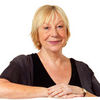Don't pay too much to get into property market
By Pam Walkley
With house and unit prices rising, particularly in Sydney and Melbourne, investors need to be wary not to pay over the odds to get into the market.
This can also be a trap for first-home buyers but it's usually not as critical because their main motivation is to provide accommodation for themselves and their families whereas investors want to make money.
While overall price rises have not been huge - 12.2% in Sydney and 9.6% in Melbourne since the market trough in May 2012, according to the RP Data-Rismark Home Value Index - there are pockets, such as inner-city Sydney, where they are running much harder.
While most commentators say talk of a house price bubble is going too far, the Reserve Bank clearly has some worries, warning property buyers about overpaying for houses.
And according to its analysis, the ratio of house prices to incomes is 33% higher than it was in the late 1990s.
The fact that price growth is running much faster than wages underscores that investors are saturating the market.
Respected commentator Michael Matusik has no truck with the "bubble" theory.
He describes the current market as "house prices lifting from a low base in response to very favourable influences such as low interest rates, an undersupply of new housing starts and strong population growth".
And he points out: "Over the past decade, Sydney home prices have barely grown in line with inflation - 2.7%pa."
Louis Christopher, managing director of SQM Research, expects Sydney house prices to rise further in 2014, up to 20%-30% if we get a strong economic recovery with rate rises factored in.
Even under his worst-case scenario - where China and other Asian economies have a hard landing, Australian unemployment heads to 7%, the dollar falls below US80 cents and official rates are cut to 1.5% by autumn 2014 - Sydney house prices would rise by 12%-15%.
On balance, Christopher expects moderate economic recovery next year, with rate cuts limited to 0.25% and a possible rate rise in the second half of the year.
This would see Sydney house prices rise 15%-20%. Melbourne would be the best of the rest with price growth of 5%-8%, Perth 4%-8%, Brisbane 4%-7%, Darwin and Hobart 3%-6% and Adelaide 3%-5%.
Canberra is expected to be the only capital likely to record a fall in values of 1%-4%.
If Christopher is correct, investors currently buying in Sydney will on average enjoy strong capital growth, at least in 2014. But they should weigh up the risks of jumping into a hot market.
Here is what other experts say:
"I tend to sit back and wait when the market is hot," writes Tyron Hyde in his new book Claim It!*
"I don't want to buy when there are 100 people going to auction against me. I'd rather buy when there are not a lot of buyers," says Hyde, a director at property depreciation experts Washington Brown and a property investor.
"I've found that many of my successful investments have been made by going against the crowd and buying when most people are worried about the market and sitting on the sidelines," says investor Michael Yardney, director of Metropole Property Strategists.
*Published by Major Street Publishing, RRP $29.95
Home loan tips
What are some of the top insurance priorities for home owners?
First, protect your most important assets with home and contents insurance. Ask if your lender provides discounts through your home loan package.
Second, you can protect your home by paying ahead on your home loan and taking out mortgage protection insurance. Check the period of time the insurance will cover your loan repayments.
Third, consider life insurance, income protection insurance and trauma cover to protect your family, lifestyle and assets in case you or your partner are no longer able to work through injury or serious illness.
Ask your financial adviser to complete a risk insurance analysis appropriate for your particular circumstances.
Talk to a trusted adviser about which insurances can be paid from your super fund and which may be tax deductible.
Get stories like this in our newsletters.



